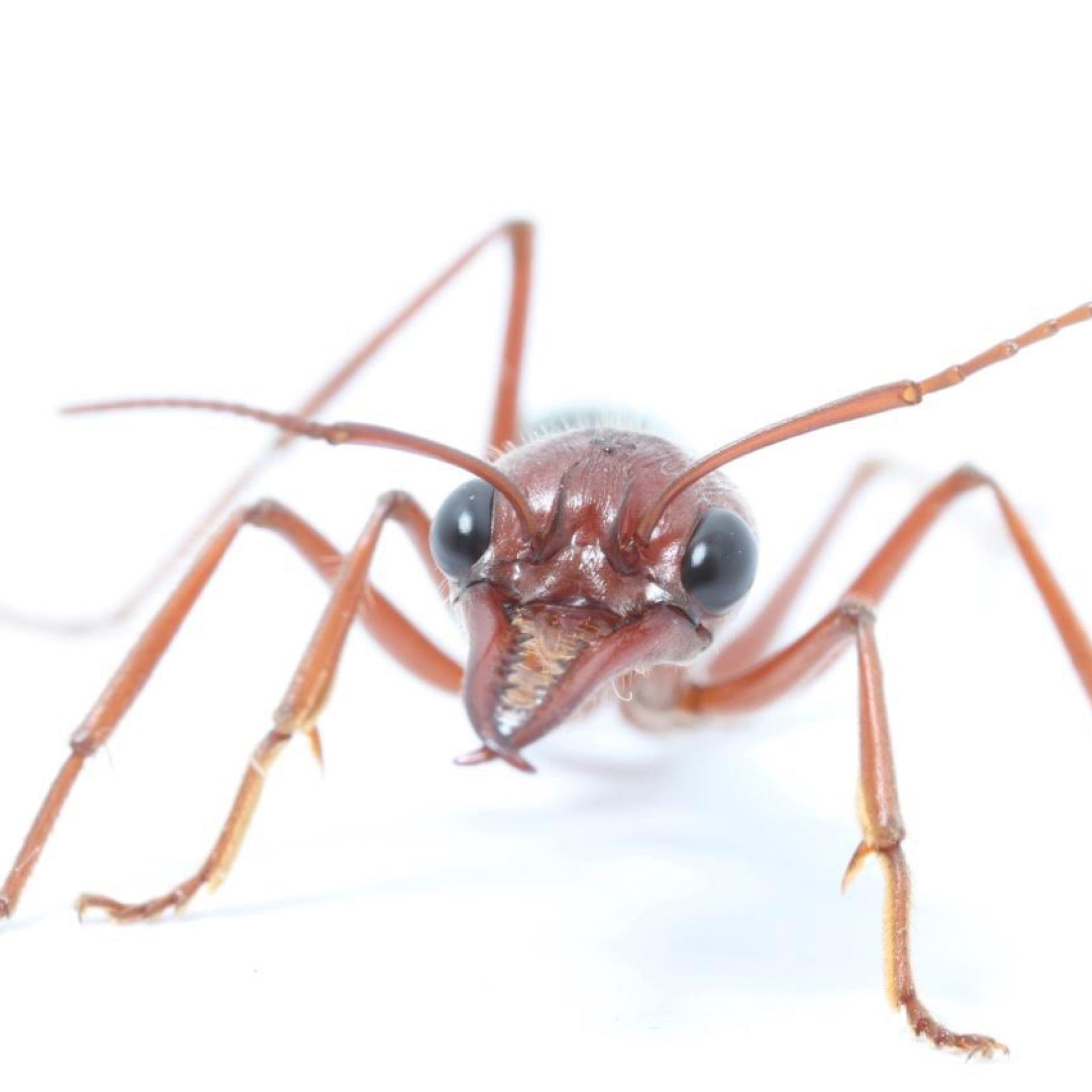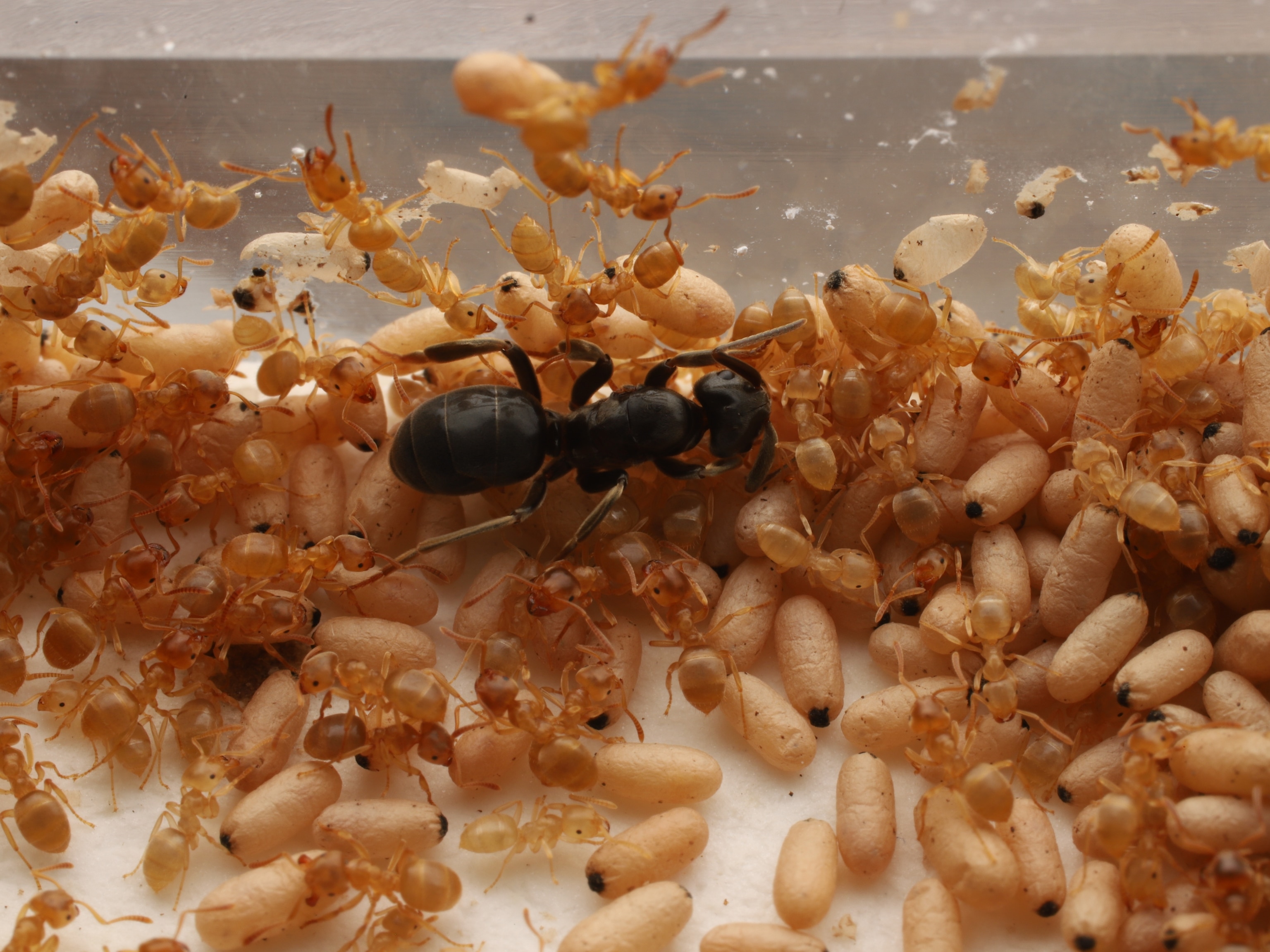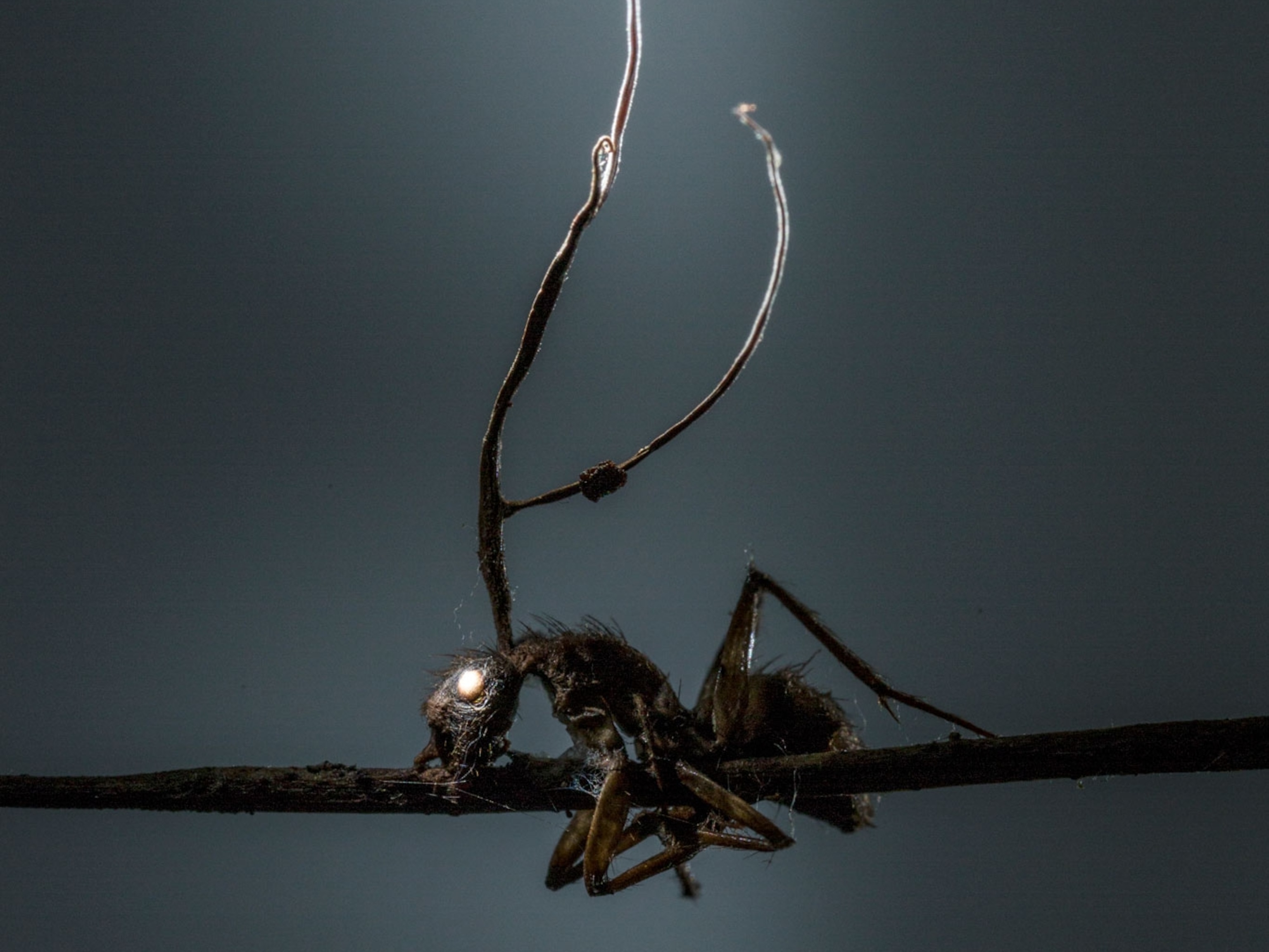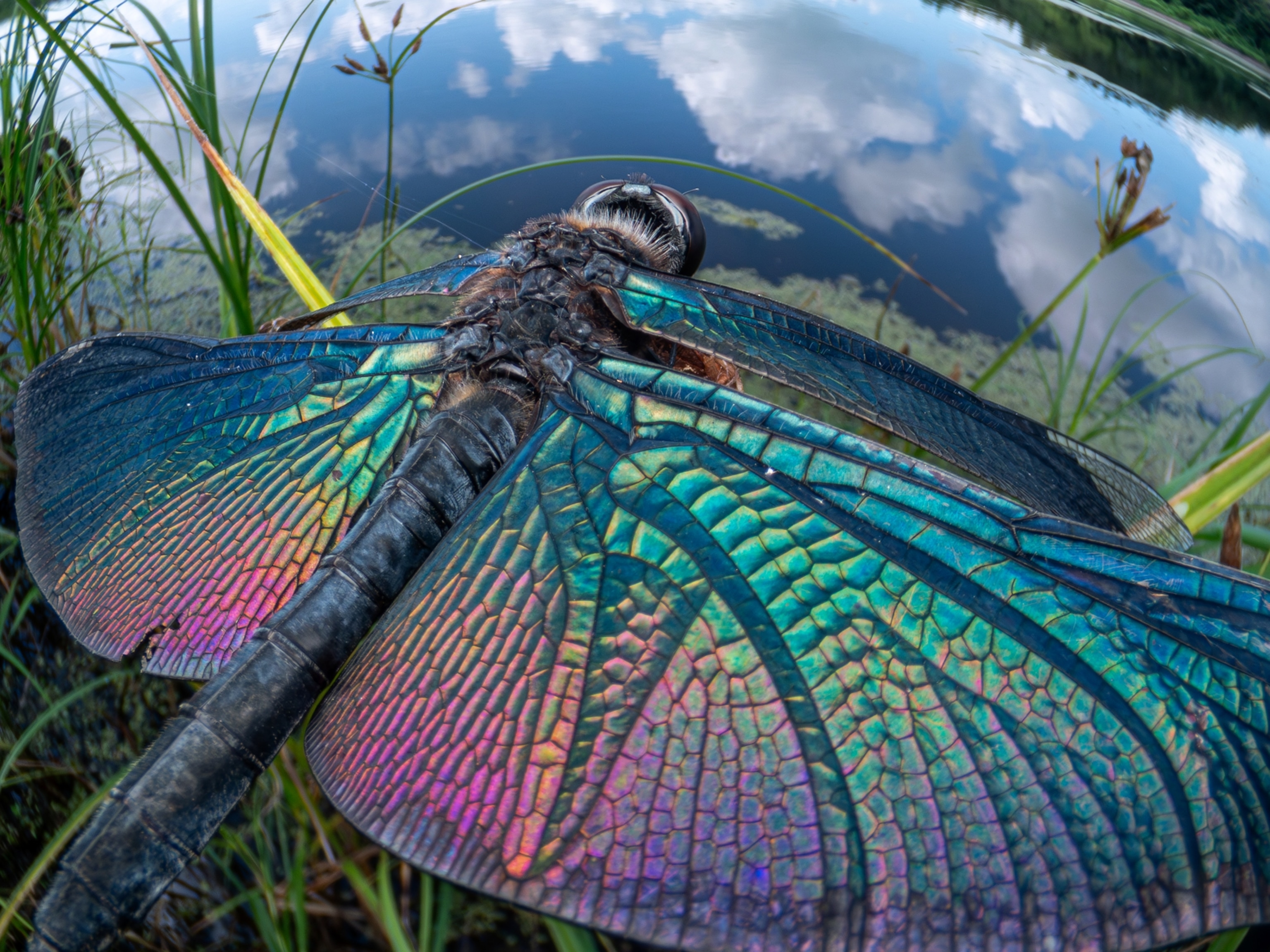
E.O. Wilson, ‘Darwin’s natural heir,’ dies at age 92
The biologist and ant specialist championed biodiversity and conservation.
Edward O. Wilson, the American biologist and leading authority on ants whose study of tiny insects led to some of the biggest, most provocative scientific ideas of the 20th century—notably that a biological basis to human behavior exists and that preserving biodiversity is key to the planet’s survival—died on December 26 in Burlington, Massachusetts, according to a statement from the E.O. Wilson Biodiversity Foundation. He was 92.
Called “one of the foremost naturalists in both science and literature” by the National Geographic Society, which awarded him its Hubbard Medal in 2013, and “Darwin‘s natural heir” by others, Wilson was a soft-spoken Southern gentleman who did his seminal work at Harvard University, yet never forgot his roots in Gulf Coast Alabama. Much of the modern environmental movement owes its scientific underpinnings to him.
“He played the most important role in elevating biodiversity in the public consciousness,” said Thomas Lovejoy, the late ecologist who coined the term “biological diversity.” “Ed’s elegant writing has contributed in a way that none of the rest of us has.”
Wilson’s contributions were legion.
One of his most important came in 1967 with the publication of The Theory of Island Biogeography, which he developed with Robert MacArthur, a biologist at Princeton. It linked an island’s size to the number of species it supported. Although it initially focused on land surrounded by water, the concept became a cornerstone of conservation biology when applied to mainland “habitat islands,” or reserves, threatened by agricultural and urban development.
Later, Wilson and mathematician William Bossert, a Harvard colleague, helped unlock the secrets of ant communication, describing their secretion of chemical signals known as pheromones. Microorganisms, plants, and most animals use such scent signals to relay information.
Some of Wilson’s work sparked a political firestorm. In the 1970s, his study of social ants, bees, wasps, and termites led him to create the field of sociobiology, which shattered then-popular dogma that babies are born tabula rasa, or with their minds a blank slate to be formed by nurture and learning alone. In The Insect Societies, and more fully in Sociobiology: The New Synthesis, he insisted that genetic traits influence intelligence and play a role in both animal and human behavior, including aggression.
Scientists on the left, such as Wilson’s Harvard colleague Stephen Jay Gould, attacked his ideas, flinging charges of racism and sexism. Wilson even had water poured on his head at a scientific meeting.
“That was so radical to people who wanted to believe” otherwise, said Peter Raven, a leading botanist and conservationist, National Geographic Explorer, and 2018 Hubbard Medalist. As the longtime director of the Missouri Botanical Garden in St. Louis, Raven worked with Wilson for decades. “Ed was attacked very viciously, but he was right.”
Wilson would later admit to political naiveté and insist he was misunderstood. Still, he lived long enough to see his ideas vindicated and accepted by the scientific community.
Edward Osborne “E.O.” Wilson was born June 10, 1929, in Birmingham, Alabama, to Edward and Inez Wilson. They divorced when he was a boy, and Ed, as he was known to friends, grew up exploring the forests and swamps around Mobile.

Wilson’s fascination with ants developed after a childhood fishing injury left him blind in one eye but with 20/10 vision in the other. His acute near-distance vision allowed him to focus “on little things,” he said. “I noticed butterflies and ants more than other kids did, and took an interest in them automatically.”
He often said he was inspired by an article in the August 1934 issue of National Geographic magazine titled “Stalking Ants, Savage and Civilized,” written by the director of the National Zoo in Washington, D.C.
“In reading it, he realized he could do his own exploration,” said John Francis, a former vice president of research, conservation, and exploration at the National Geographic Society. “It was the beginning of a long and illustrious career.”
Wilson earned B.S. and M.S. degrees in biology at the University of Alabama. In 1955 he finished his doctorate at Harvard and set off to conduct field research in the tropics of Cuba, Mexico, and later the South Pacific. He catalogued hundreds of new ant species.
He eventually returned to Harvard, where he served as curator of insects at its Museum of Comparative Zoology for the rest of his life.
A prolific author who wrote every day, Wilson published more than 20 books. In 1978, eager to answer critics of sociobiology, he expanded on the role of biology in human culture in On Human Nature. The book launched the field of evolutionary psychology and won Wilson the first of two Pulitzer Prizes. His monumental treatise, The Ants, with co-author Bert Hölldobler, became the only book written for scientists to win a Pulitzer.
Wilson’s writing was hardly confined to empirical science.
In Biophilia, he coined a new word to describe humanity’s rapport with nature. He wrote about his beloved Mobile and, drawing on classic Southern literature, penned the bestseller, Anthill: A Novel, which was excerpted in The New Yorker.
But it was the stewardship of nature that animated him most. It was behind the founding of the E.O. Wilson Biodiversity Foundation and his effort to find common ground between science and faith.
In The Creation, the lapsed Southern Baptist called for “an alliance between science and religion to save ‘the creation’—biodiversity—which is going down the tubes rapidly,” he told National Geographic in 2006. “The preservation of biodiversity is essential for the stable existence of the Earth and our species.”
Said Francis, a former National Geographic Society vice president: “There’s no one like him who has the power of writing along this difficult frontier in a way that’s so careful and wonderful and rich.”
The winner of more than a hundred awards, including the National Medal of Science, Wilson was never above taking a fresh look at his conclusions and revising them if necessary. He eventually abandoned the idea of “kin selection,” or altruism for one’s own relatives, in favor of natural selection that favors groups.
Wilson was preceded in death by his wife, Irene, whom he married in 1955, and is survived by their daughter, Catherine, and her husband, Jonathan. He worked until the end. Among his many projects: restoring Mozambique’s Gorongosa National Park, ravaged by civil war and deforestation, and creating a new park in the Alabama delta near where he grew up. He also forcefully argued for the “half-Earth” conservation concept, which calls for humans to set aside half of our planet’s lands and seas for other species—a goal that he insisted could and must be achieved.
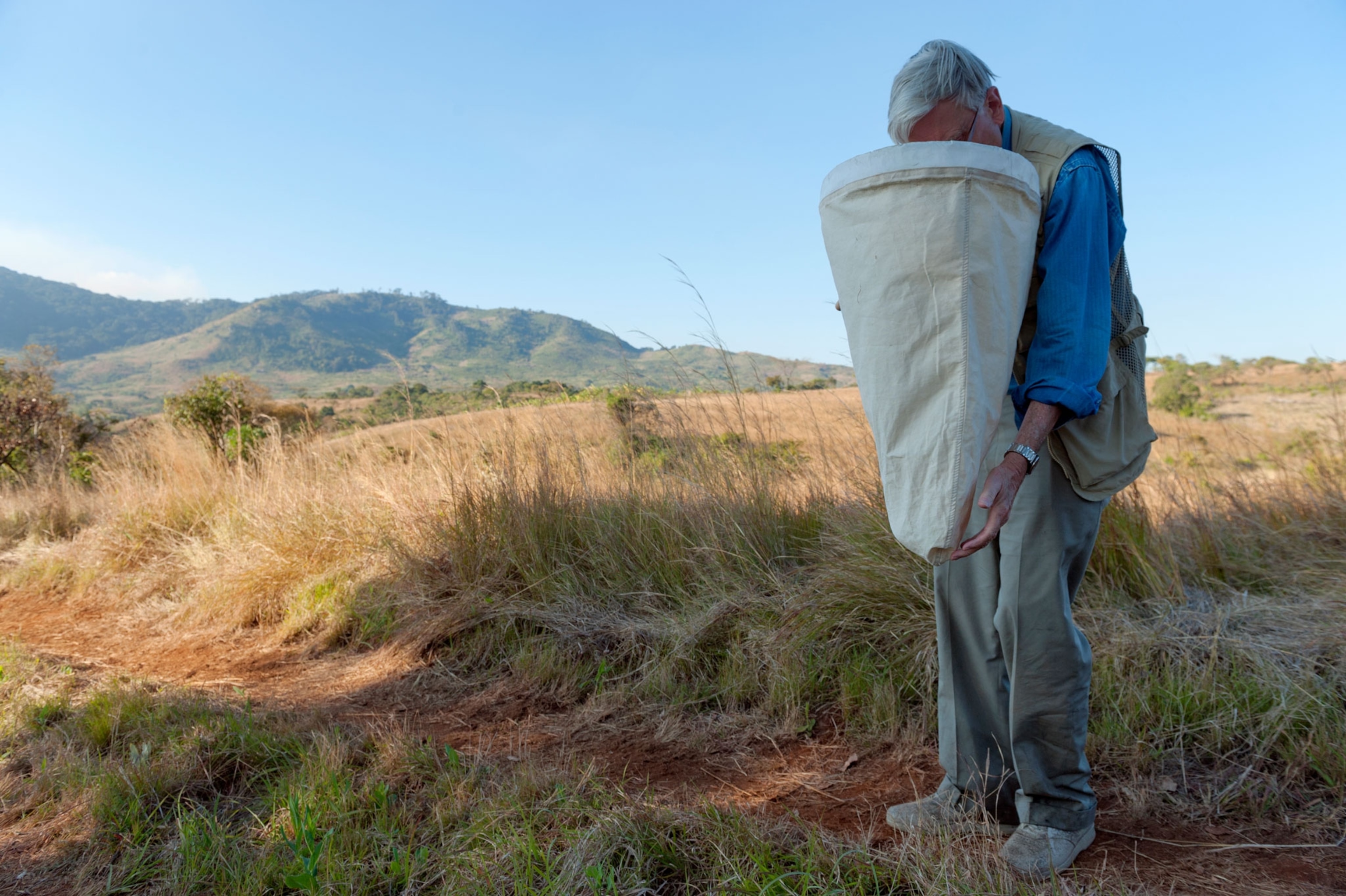
Through it all, the avuncular scientist maintained his sense of humor. Lovejoy, recalling a trip to the Amazon where he and Wilson searched for the Daceton genus—a big, husky ant that can turn its head 180 degrees—said even though Wilson had the “ant and termite equivalent of the Midas touch,” they thought they had struck out.
“Then I found it—on Ed’s shirt,” he said. “He was ever the gentleman, saying, ‘This will go into the Harvard collection with you as collector and me as habitat.’”
And until the end, Wilson also maintained his optimism for a better future. In a 2019 interview with National Geographic, the 90-year-old Wilson articulated his biggest dream: “That somehow we have as a value, a human value, that we not destroy but we protect and study and understand and love the environment that was our birthplace. And the species that were our birth mates, and the ecosystems that are most able today as they were in the past to take care of themselves, giving us almost infinite benefits in maintaining the kind of lives, aesthetically and in terms of our health, that we could hope for.”
Wilson added: “I believe that we’re on the edge of a new era, in which value is extended to saving the rest of nature. Knowing it, preserving it, studying it, understanding it, cherishing it, and holding on until we know what the hell we’re doing.”
